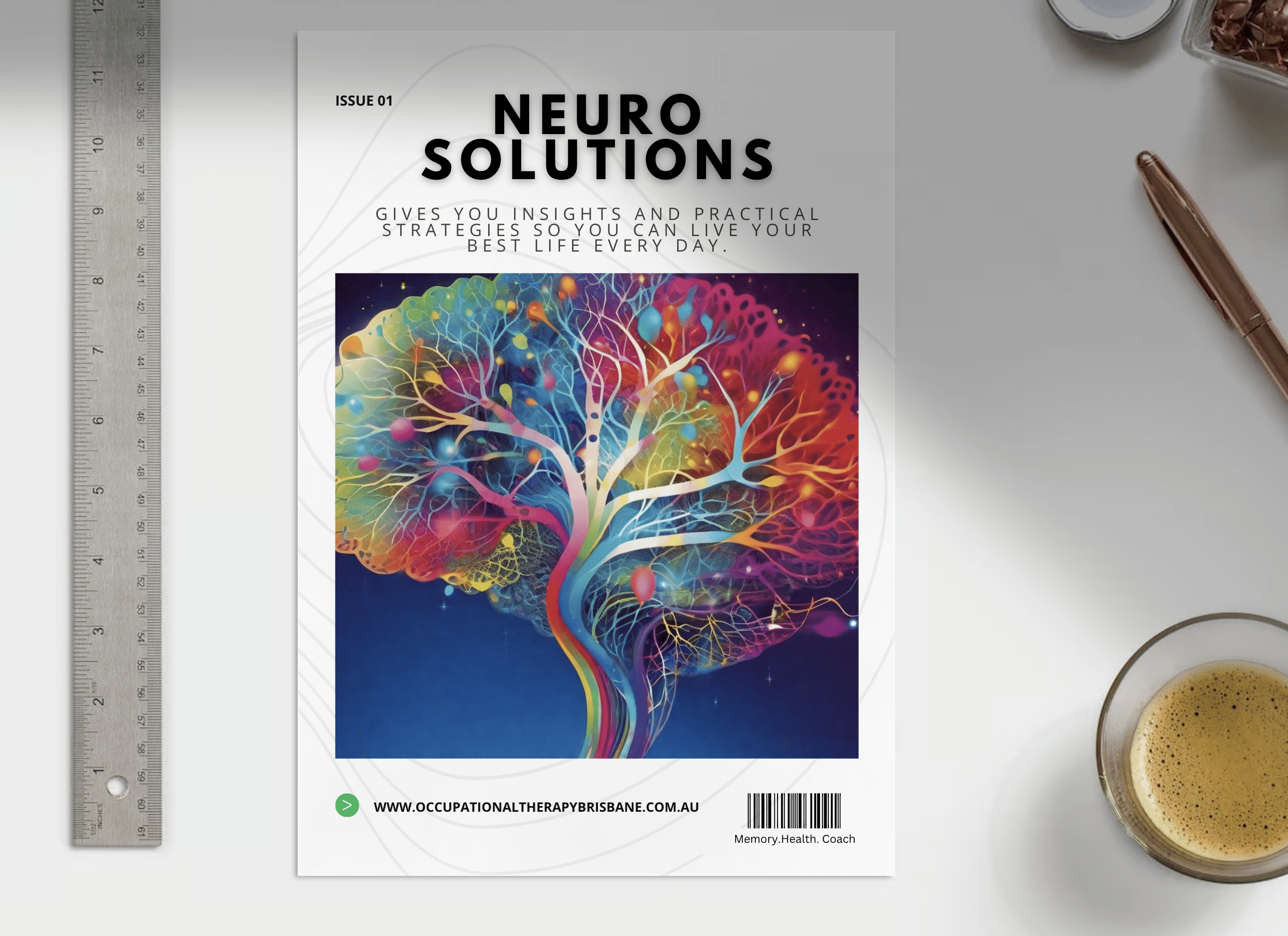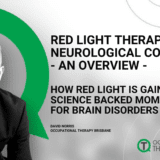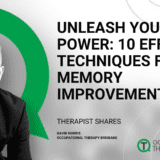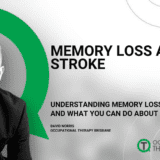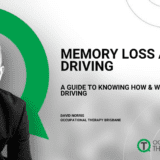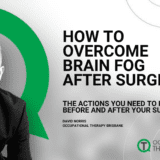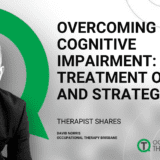If you’re experiencing forgetfulness and wonder if there’s a link between depression and memory loss, you’re not alone.
Feeling sluggish, down, blue, trouble being motivated? What’s often missing from a discussion about your flat mood is how depression and memory loss can occur at the same time. It’s common to feel more forgetful than what you’d usually experience.
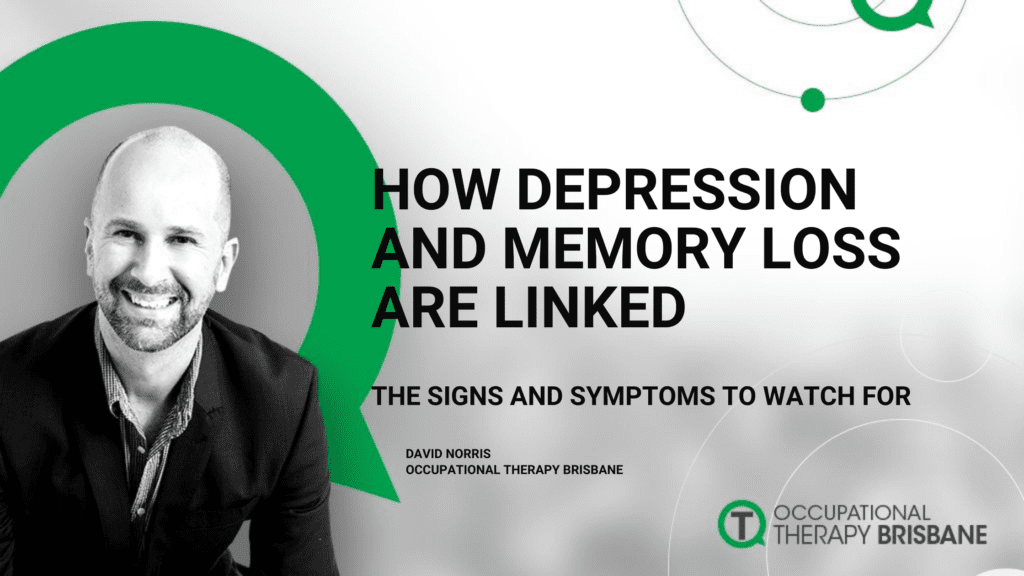
It’s expected that 3 out of 5 people experience memory loss with depression. Furthermore, living with a depressive disorder is likely to show more cognitively visible changes. The current thinking is that these memory health changes are connected to the changes in the structure and function which occur when you’re living through a depressive episode.
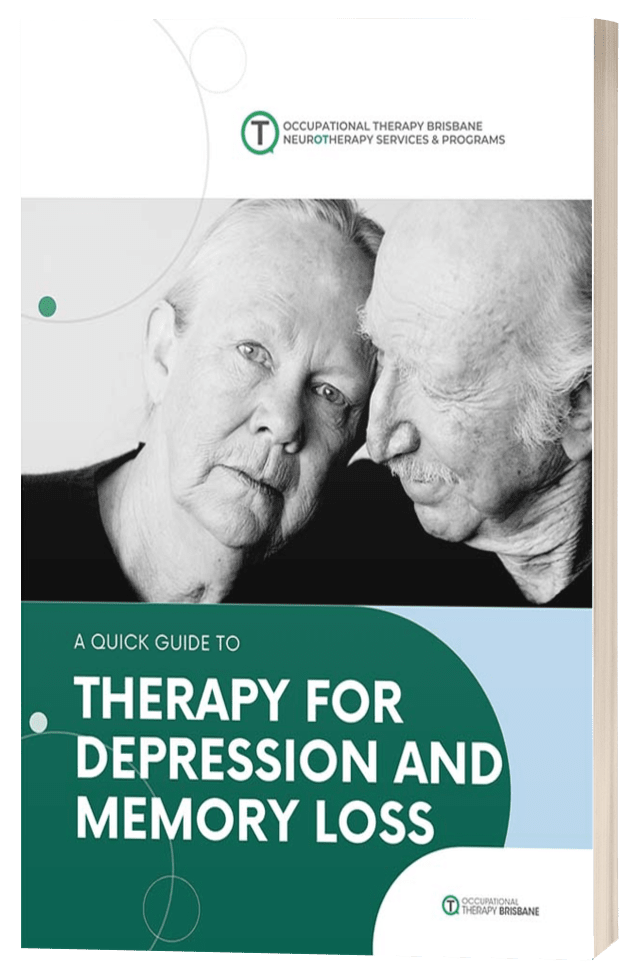
FREE: THERAPY FOR DEPRESSION AND MEMORY LOSS (A Quick Guide)
FREE: THERAPY FOR DEPRESSION AND MEMORY LOSS (A Quick Guide)

Download Free Guide

In this article you’ll learn:
- The Symptoms of Depression Can Be Difficult to Recognize ( Many Symptoms, One Condition)
- What Memory Functions Can Change With Depression
- What The Research Says About Depression And Memory Loss
- Depression Later In Life Associated With Severe Memory Loss
- Depression And Memory Loss Treatments
- The Food That Can Impact Your Mood
The Symptoms Of Depression Can Be Difficult To Recognize

Depression is a very common mental illness. It affects one in every five people at some point during their lifetime, and it can be difficult to recognize because the symptoms are so varied. Not everyone will experience all these symptoms, some only a handful, what’s worth noting here is that it can present in many different ways.
Behaviour Symptoms Linked With Depression
- Not going out anymore
- Not getting things done at work/school
- Withdrawing from close family and friends
- Relying on alcohol and sedatives
- Not doing usual enjoyable activities
Feelings
- Overwhelmed, guilt, easily upset and irritated, frustrated by everyday events or experiences
- Unhappy, sad or feeling flat and dull
Physical
- Tired all the time
- Sick and run down
- Headaches and muscle pains
- Upset tummy, chiurning or easily irritable
- Difficulties with sleeping be it falling and staying asleep or being oe feeling sleepy all the time
- Changes in your appetite
Thinking and Thoughts
- Reduced concentration
- Reduced attention
- Reduced problem solving skills
- Memory loss
What Memory Functions Change With Depression
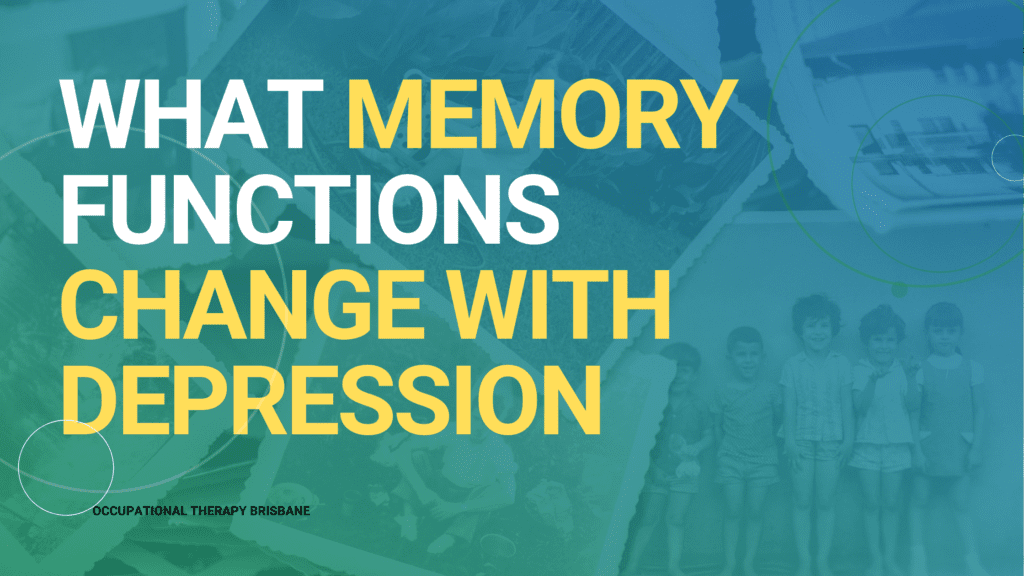
The change in your memory health that is commonly seen with depression occurs with working memory. Working memory is your ability to store short term information that you rely on to make decisions, actions moment by moment. Working memory allows you to keep doing a task without losing track of what you’re doing.
What Does Working Memory And Depression Symptoms Look Like?
Your working memory skills underpin all that you do in daily life. Examples of working memory changes and depression are
- Keeping the numbers of a phone number in mind that someone has shared with you as you add it to your phone or entering in the bank code from your phone to your computer to authorise a transaction
- Following a recipes next steps and going to your fridge to receive the next ingredient
- Checking off items from your groceries list after adding them into your trolley
More than just memory there are other cognitive changes as well that can occur with a depressive episode.
Other Cognitive Changes Seen With Depression
Beyond working memory, other thinking and physical skills are also observed. This can include reduced attention, difficulty with planning and problem solving, delayed or slowed reaction times, reduced capacity to manage simple to complex decisions. You could say there is a reduced resilience of the brain to meet the demands of the world about people.
When Types of Memory Change With Depression
The severity and impact of memory health changes isn’t as straightforward as you’d think and that’s likely why it’s often neglected in the conversation about a person’s mental health. For example you could say ” He’s depressed and that’s why he isn’t eating well, taking their medication”
True, but partially right. You see what is the impact of the memory changes? It is further compounding the depression experience.
Number of Depression Episodes May Be Linked With Greater Memory Impairment
An emerging research picture reveals that it’s likely that the first episodes of depression it’s likely the memory health impact is not as great when compared to more severe, long term or repetitive experiences of depression. Not only that, after recovery from an episode, a person may continue to experience memory changes despite minimal or no mood symptoms.
What The Research Says About Depression and Memory Loss
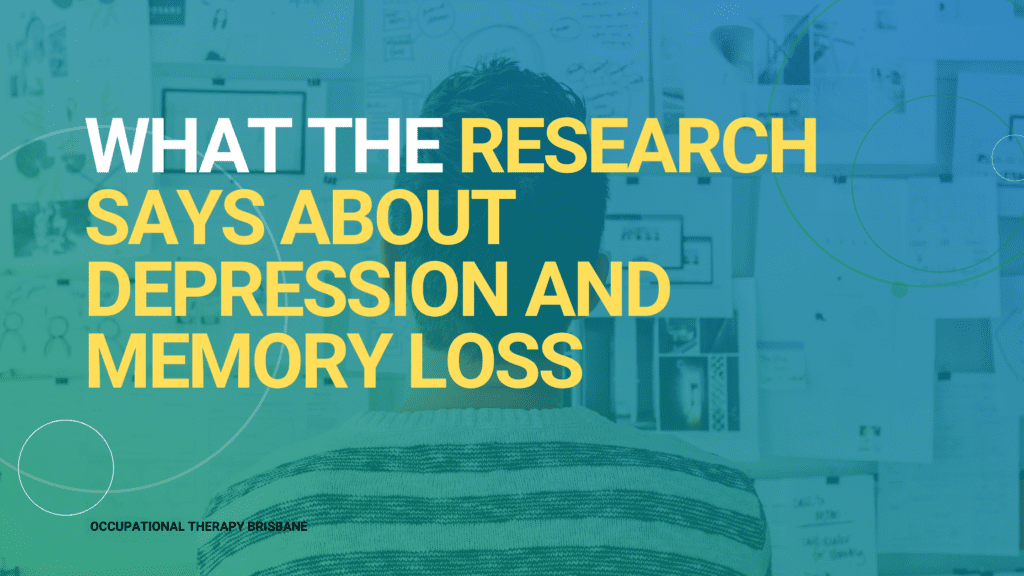
There are widespread changes across the brain which are linked with depression. These changes as seen to impact the structure and function of brain regions:
- Prefrontal cortex: this is an area of the brain that uniquely occupies almost 30% of the mass of the brain with the role for high level , goal directed cognitive behaviours
- Hippocampus: the area of the brain linked with memory formation and management
- Amygdala: the are of the brain with the role for emotional regulation
Combined, these regions are connected and work together in order to support your thinking and memory skills from planning, memory and judgement to emotional regulation and problem solving.
Brian Structure Changes Seen With Depression
Commonly people who have experienced major depressive episodes are noted to experience physical changes to the brain areas of the frontal lobe, hippocampus, temporal lobe, thalamus, striatum, and amygdala (Zang et al, 2018). The characteristic symptoms of a major depressive episode are persistent low mood, often accompanied cognitive dysfunction, physical symptoms, and impaired social function.
The work of Zang and associates is novel and somewhat controversial as they also proposed that a major depressive episode has a clinical profile or “fingerprint” that not only affects specific areas but also the overall network.
Think of this like an integrated traffic light system. We all appreciate when they work in synchronicity but it takes a rain event, or a technical glitch for this harmonious interaction is thrown out.
Depression and Neuro-Inflammation
It’s unclear whether depression happens before neuro-inflammation or whether it’s the other way round. What is emerging in the research is the presence of neuro-chemical markers associated with inflammation in the brains of people with depression.
The impact of these inflammation makers affect
- Reduced neuron growth in the hippocampus ( memory centre)
- Fewer neurons ( loss of cells)
- Reduced connections between cells
- Damage to healthy cells “immune response”

FREE: THERAPY FOR DEPRESSION AND MEMORY LOSS (A Quick Guide)
FREE: THERAPY FOR DEPRESSION AND MEMORY LOSS (A Quick Guide)

Download Free Guide

Depression In Later Life Associated With Severe Memory Loss
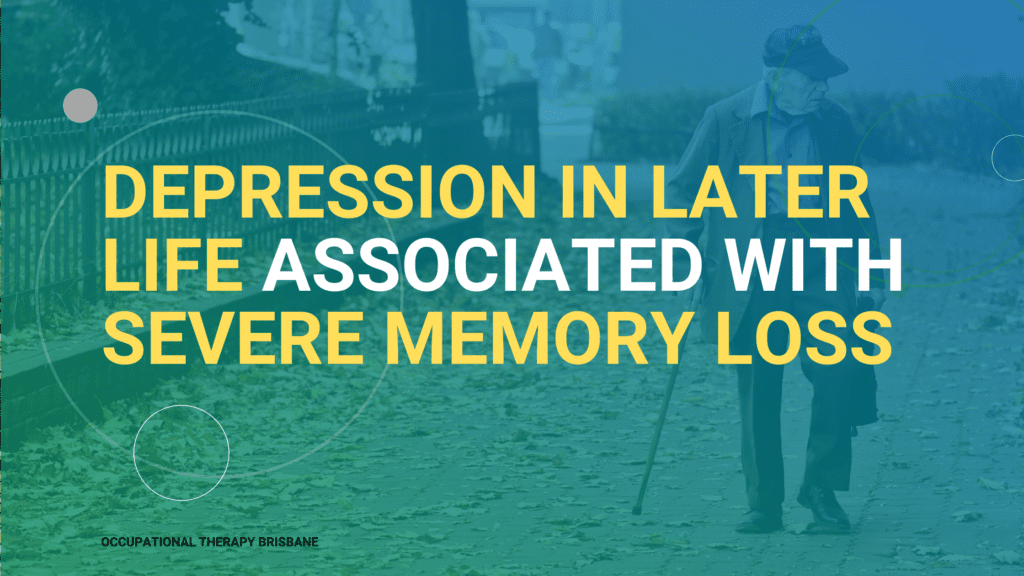
The big question is “Are the memory loss with depression changes permanent, and will they get worse?’ It appears there are structural changes to the brain, especially in the hippocampus ( memory centre) with these are long term changes is unclear.
An Example Of How You Can Change Your Brain and Improve Your Mood With Simple Daily Actions
The SMILES study (2017), demonstrated the impact of nutrition and mental health. In this randomised control trial they showed by changing your diet to a nutrient dense diet was linked with significant improvement in mood and emerged as a new treatment approach to the management and prevention of depression.
The backstory to this ground breaking work was in part based on observing
- how eating the Standard Western Diet was linked with small hippocampus (less volume and density).
- And by subsequently changing your diet to a more nutrient dense, nutrient rich diet, there was improvement
This disruption in cognitive function that can accompany depression symptoms can sometimes resemble the symptoms of dementia. Although not a diagnosis of dementia, when this occurs it is often referred to as “pseudodementia,” or dementia of depression. The good news is that by treating depression, patients generally find relief from symptoms, including difficulty with memory (forgetfulness) and concentration.
Depression and Risk of Dementia: What is the link
In 2020, The Lancet revised their seminal publication of 2017 which outlined the health, social and activity risks linked with a person’s lifetime risk for dementia. Depression in later life is associated with increasing a person’s risk for dementia, not so earlier in life.
Reduce Brain Volume In Older People Living With Depression
In a study of 66 older people diagnosed with depression found “Reduced hippocampal volumes occurred in older people with depression, those with both early-onset and late-onset disorders and those with the melancholic subtype. Reduced hippocampal volumes were associated with deficits in visual and verbal memory performance. (pubmed.ncbi.nlm.nih.gov)
Depression and Memory Loss Treatment
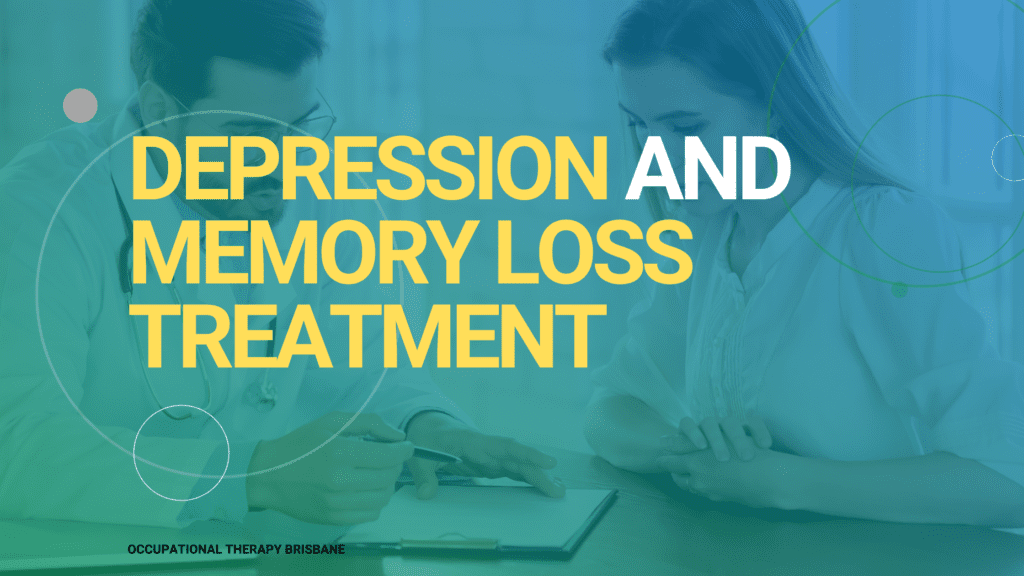
Firstly, we’ve explored that there are memory loss symptoms associated with depression. It’s also worth bearing in mind that there are many factors that can contribute to memory loss in the short term. We’ve explored previously in detail what these short term memory loss causes are but for the purpose of this conversation, it appears that treating the depression is likely to impact a person’s memory performance.
There is no one therapy approach to the treatment of depression. A personalised approach will commonly include your doctor, specialist, therapist and other health professionals. Commonly a person living with depression will encounter the following:
Psychological Therapies for Depression
- Cognitive Behavioural Therapy (CBT)
- Interpersonal Therapy
- Mindfulness Based Cognitive Therapy
- Neurofeedback for Depression and Treatment Resistant Depression: An emerging field of therapy with a diverse literature quality, overall two meta analysis of the literature appears to support “neurofeedback treatment may be effective as an augmentation treatment, not only for depressive symptoms, but also for functional recovery, in patients with TRD.” (Fernandez Alvarez et al, 2019., Barias, 2021.) In it’s application for memory loss, the research is less available and again plagued by quality issues so the golden standard of randomised control trial is inconsistent. The clinical opinion appears to demonstrate improvement in memory function in people living with mild to moderate cognitive changes (Trambaiolli et al, 2021).
Medical Therapies
- Antidepressant medication therapy: There is a wide range of antidepressant medication available such as Selective Serotonin Reuptake Inhibitors (SSRIs) to Tricyclic Antidepressants (TCAs) plus more. The medication choice will be guided by your doctor or specialist.
Lifestyle Therapies for Memory Loss and Depression
- People are using a variety of medications and therapies to help manage their symptoms. What’s often forgotten is information and support to help your body’s natural way of being, the lifestyle factors.
- Nutrition: The SMILES study demonstrated the importance of food for your mood and the work of the lead author, Prof Jacka is well documented in her book Brain Changer which outlines role of nutrition for your memory health as well.
- Exercise: is noted to benefit working memory, depression and processing speed
- Sleep
Food For Mood: Diet and Depression
Professor Felice Jacka of the Food and Mood Centre at Deakin University presents a fascinating lecture on diet and mood. In the presentation she covers
- What should we be eating to give ourselves the best chance of feeling well and happy, and
- What foods should we avoid,
- How does it all work
If you’re living with depression or experiencing a depressive episode no doubt you’re aware of any memory and wider cognitive changes. It’s emerging that memory loss is commonly seen in people experiencing depression, so you’re not alone. Acting and attending to memory loss during an episode is important to reduce a person’s threats to their recovery as well as being mindful that memory changes may also continue beyond being blue.

FREE: THERAPY FOR DEPRESSION AND MEMORY LOSS (A Quick Guide)
FREE: THERAPY FOR DEPRESSION AND MEMORY LOSS (A Quick Guide)

Download Free Guide




